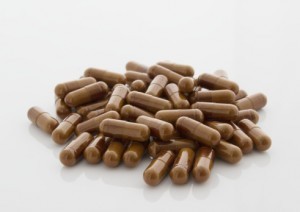Poop Pills – Digestive Treatment of the Future?
 It definitely doesn’t sound appetising, but research suggests it is the most effective treatment for stubborn intestinal infections.
It definitely doesn’t sound appetising, but research suggests it is the most effective treatment for stubborn intestinal infections.
Faecal transplants or ‘poop pills’ are reported to be a well tolerated and highly successful therapy for recurrent bouts of debilitating Clostridium difficile infection.
Clostridium difficile is a type of opportunistic bacteria that can cause an infection in the gut if it is allowed to grow beyond normal levels found in healthy people.
Major risk factors for Clostridium infection are antibiotic use as this reduces levels of protective gut bacteria, gastric acid suppression from medications such as Nexium (proton pump inhibitors) and poor hygiene.
Clostridium infection causes severe diarrhoea and bowel inflammation in sufferers causing serious illness and in some cases even causes death.
The medical treatment for this infection is administration of antibiotics, however antibiotics are not always effective and the infection may continue or reoccur.
Recently, faecal transplantation has been trialled as a new therapy to rebalance intestinal bacteria and treat Clostridium overgrowth in infected patients.
Faecal transplants contain the good bugs from a healthy donor’s stool and are usually administered by enema, colonoscopy or nose tube to reach the intestines.
New Research Developments
As current faecal transplant methods can be costly and invasive, researchers have now developed faecal transplant pills containing the bacteria from a donor stool, usually a relative of the patient’s.
The pills are triple coated gel capsules, designed not to break down until they reach the intestines to avoid any unpleasant taste or odour.
In a recent Canadian study, 27 patients with chronic or recurring Clostridium infections were given this novel treatment. Patients took antibiotics in the days leading up to the treatment to kill off the Clostridium infection before taking 24-34 capsules containing bacteria isolated from a donor stool in one sitting.
T he treatment was successful in 100% of these cases with no patients experiencing a relapse infection, despite all having had 4 or more previous bouts of Clostridium infection prior to the treatment.
he treatment was successful in 100% of these cases with no patients experiencing a relapse infection, despite all having had 4 or more previous bouts of Clostridium infection prior to the treatment.
‘Poop pill’ therapy is not yet ready for mass production, however lead researcher, Dr Louie believes that eventually it may be a valuable treatment for a range of digestive disorders caused by intestinal bacteria imbalance, not just Clostridium.
What can you do to protect your gut?
Enhance the diversity of good bacteria by supplementing with a broad spectrum, potent probiotic such as UltraBiotic 45. This is especially important to restore intestinal health after taking anti-biotics.
Strengthen immune defences in the gut and reduce risk of harmful bacteria adhering to the digestive tract lining with a lactoferrin-rich colostrum formula such as GastroCare Excel or High Potency Colostrum with Glyconutrients.
Soothe inflammation and strengthen digestive tract membranes with Intestamine or Gut Relief.
These are great powder formulas containing glutamine – an amino acid involved in digestive tissue repair, anti-inflammatory curcuma extract, soothing aloe vera and slippery elm along with additional healing nutrients.
Taking Antibiotics right now?
A recent Cochrane Review has confirmed that taking probiotics alongside antibiotic medications can help to minimise the chances of experiencing antibiotic-induced diarrhoea which is associated with Clostridium overgrowth.
We recommend taking SB FlorActiv or probiotics for Dysbiosis Control during a course of antibiotics, followed by a broad-spectrum probiotic.
Find out more about the benefits of probiotic supplementation with antibiotics.
Further Reading:
- Probiotics for Immune Balance
- Research Insight – Probiotics Help Prevent Antibiotic-Related Diarrhoea
- Are Your Intestinal Bacteria Making You Fat?
References:
Bakken, J.S. et al. 2011, Treating Clostridium difgficile Infection with Fecal Microiota Transplantation, Clinical Gastroenterology and Hepatology, Vol. 9(12)
Goldenberg, J.Z. et al. 2013, The use of probiotics to prevent c.-difficile diarrhoea associated with antibiotic use, Cochrane Summaries Online.













